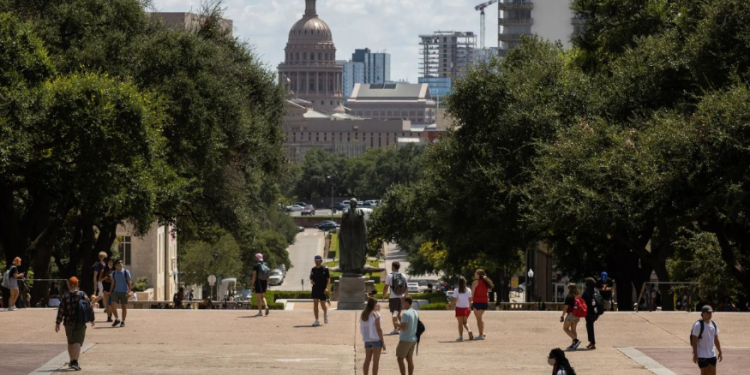Texas has officially ended its policy of granting in-state tuition to undocumented college students, following a federal court ruling issued just hours after the U.S. Department of Justice filed a lawsuit against the state. The sudden reversal marks the end of a 24-year-old law that once made Texas the first state to offer such a benefit.
U.S. District Judge Reed O’Connor sided with the state and federal government in finding the policy unconstitutional, citing that under federal law, states cannot give benefits to undocumented immigrants that are not equally available to all U.S. citizens.
“Ending this discriminatory and un-American provision is a major victory for Texas,” said Texas Attorney General Ken Paxton, who took credit for the outcome.
U.S. Attorney General Pam Bondi echoed that sentiment, saying the Justice Department would “relentlessly fight” to uphold federal immigration law and ensure equal treatment of U.S. citizens.
The Fallout: Students, Schools, and the Economy
Until now, undocumented students were eligible for in-state tuition if they had lived in Texas for three years before graduating from a Texas high school and for at least one year before enrolling in college. They were also required to sign an affidavit pledging to apply for legal status immediately.
According to Texas Higher Education Commissioner Wynn Rosser, about 19,000 undocumented students have signed that affidavit. In 2021, roughly 20,000 students paid over $81 million in tuition and fees under the now-defunct policy.
Don Graham, co-founder of TheDream.US, a scholarship program for undocumented students, said the ruling could block access to higher education for some of the state’s most driven students, with ripple effects across Texas’ economy.
“It’ll hurt the workforce, it’ll hurt the economy,” Graham warned, noting that many scholarship recipients enter high-demand fields like nursing and education.
A recent report from the American Immigration Council estimates Texas could lose over $460 million annually in wages and spending power if these students can’t continue their education.
The Politics Behind the Lawsuit
Though similar legislative efforts to repeal in-state tuition benefits for undocumented students have stalled for years, Republican lawmakers revived them this session. Senate Bill 1798 and House Bill 232 proposed sweeping restrictions, including barring financial aid, requiring students to cover tuition differences, and obligating universities to report suspected undocumented students.
Supporters, including Mayes Middleton — who is running for attorney general — framed the changes as part of a broader push for stricter border enforcement.
“From a policy perspective, if we’re for big, strong, secure borders… then we should also be looking at what we incentivize,” said Sen. Charles Schwertner.
Backlash and Legal Pushback
Immigrant advocacy groups condemned the court’s decision. Cesar Espinosa, director of the Houston-based FIEL organization, announced plans to challenge the ruling.
“This is not just,” Espinosa said. “Without in-state tuition, many students who have grown up in Texas simply will not be able to afford college.”
Espinosa and dozens of others testified in April against HB 232, sharing personal stories of how the in-state tuition law opened doors to education and economic stability.
The Texas decision leaves undocumented students in only 23 states and D.C. with access to in-state tuition, down from 24. Legal scholars suggest the issue could reach higher courts as challenges continue, while universities and communities brace for the policy’s impact.
Judith Cruz of EdTrust Texas said the decision threatens not just individuals, but the “economic and social fabric” of the state.
“This is not a giveaway,” said Espinosa. “This is something that all Texans deserve.”








